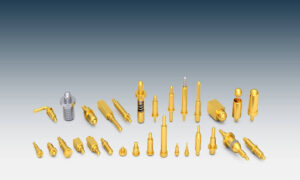Welding is a crucial process in various industries, and having the right welding supplies is essential for achieving high-quality welds. In Australia, where welding plays a vital role in construction, manufacturing, and automotive sectors, it is crucial to understand the different types of welding supplies available and how to choose the best ones for your needs. In this article, we will explore the importance of welding supplies, the different types available, factors to consider when purchasing, where to buy them in Australia, safety tips, and maintenance guidelines.
Importance of Welding Supplies
Welding supplies are the backbone of any welding operation. They enable welders to join metals, create strong bonds, and fabricate structures. Without the right welding supplies, achieving precise welds with adequate strength and integrity would be challenging. By using high-quality welding supplies, welders can ensure their work meets industry standards, guaranteeing the safety and durability of the welded structures.
Types of Welding Supplies
Welding Machines
Welding machines are the primary equipment used in welding processes. There are several types of welding machines available, such as MIG welders, TIG welders, and arc welders. Each type has its advantages and is suitable for specific applications. MIG welders are commonly used for automotive repairs and fabrication, while TIG welders are preferred for precision work on thin materials.
Welding Tools
Welding tools complement welding machines and assist in achieving precise welds. Some essential welding tools include welding clamps, chipping hammers, wire brushes, welding pliers, and welding magnets. These tools aid in holding workpieces together, removing slag and spatter, and ensuring clean and smooth welds.
Protective Gear
Welding poses various hazards, including intense heat, bright light, sparks, and toxic fumes. Protective gear is crucial to ensure the safety of welders. It includes items such as welding helmets, welding gloves, welding jackets, safety glasses, and respiratory protection. Welders must wear appropriate protective gear to prevent burns, eye injuries, and inhalation of harmful fumes.
Factors to Consider When Buying Welding Supplies
When purchasing welding supplies, several factors should be taken into consideration to ensure you make the right choices:
Quality
Quality should be a top priority when selecting welding supplies. Investing in high-quality equipment and tools ensures better performance, durability, and safety. Look for reputable brands known for their superior craftsmanship and reliability.
Price
While it’s important to consider your budget, it’s equally crucial not to compromise on quality for the sake of lower prices. Balance affordability with quality to get the best value for your money. Compare prices from different suppliers and opt for competitive offers without sacrificing the quality of the products.
Durability
Welding supplies should withstand the demands of various welding processes. Consider the materials used in their construction and opt for products known for their durability. Robust and long-lasting supplies will save you money in the long run by reducing the need for frequent replacements.
Brand Reputation
Research and choose brands with a good reputation in the welding industry. Reputable brands often have a track record of producing reliable and high-performing equipment. Read customer reviews and testimonials to gain insights into the experiences of other welders with specific brands and products.

































